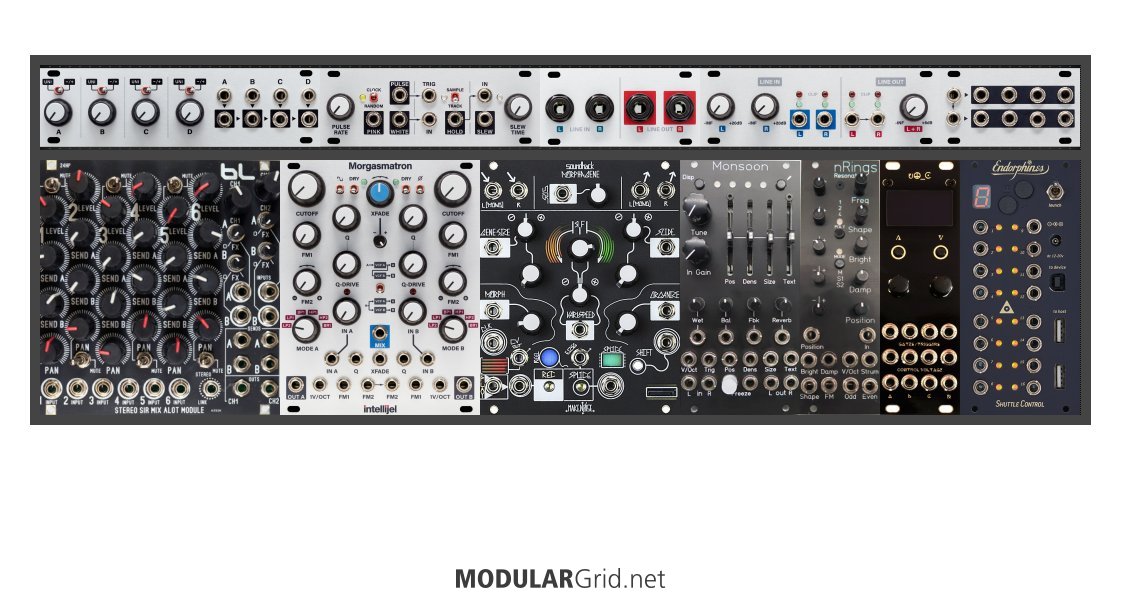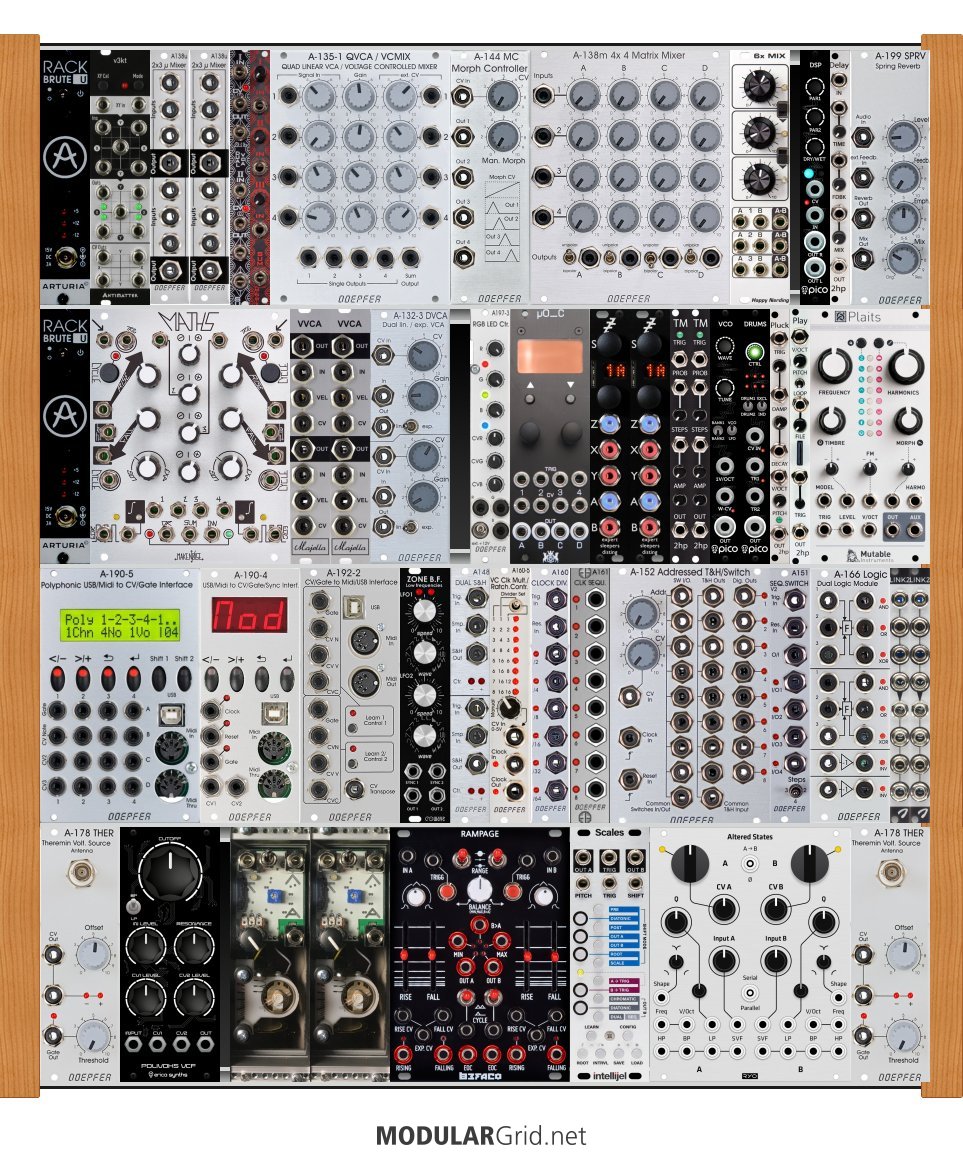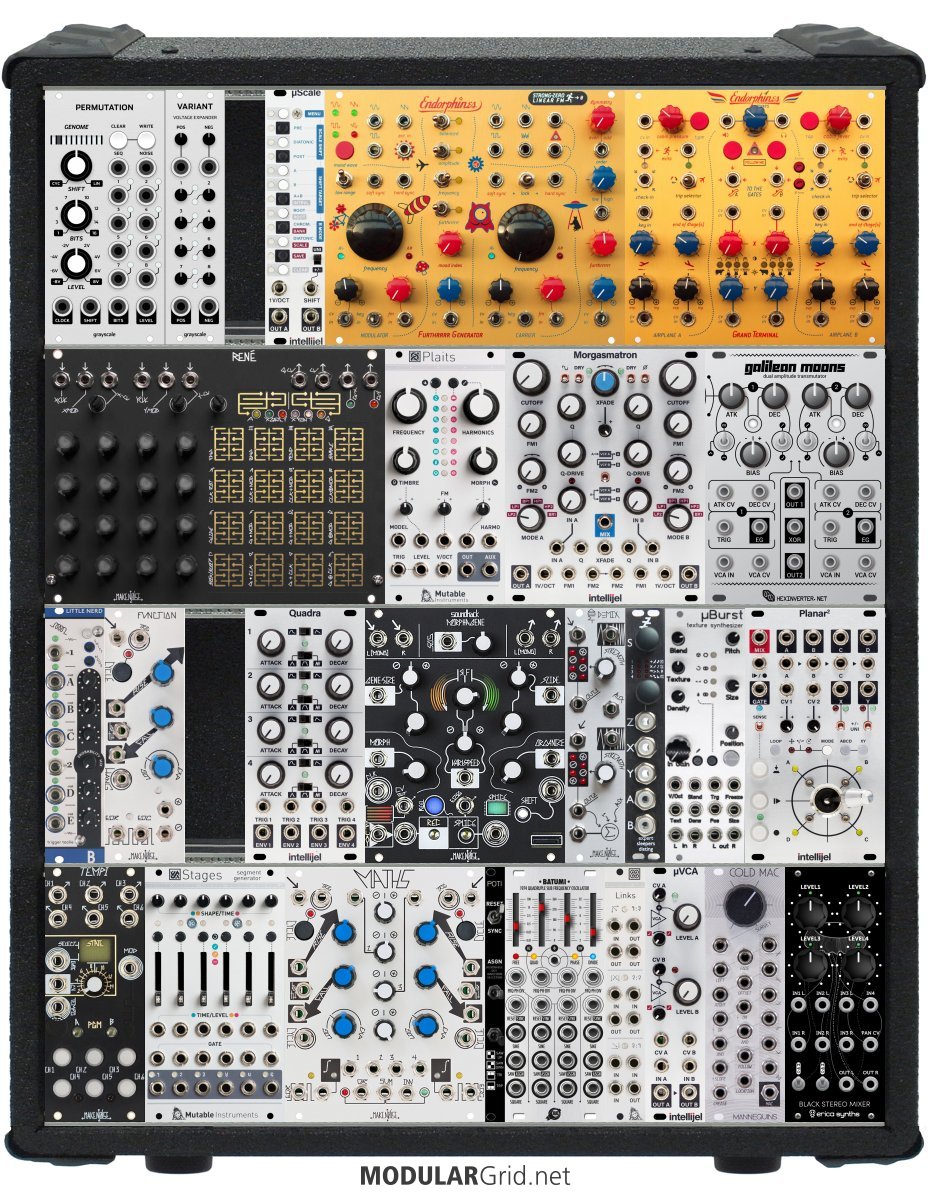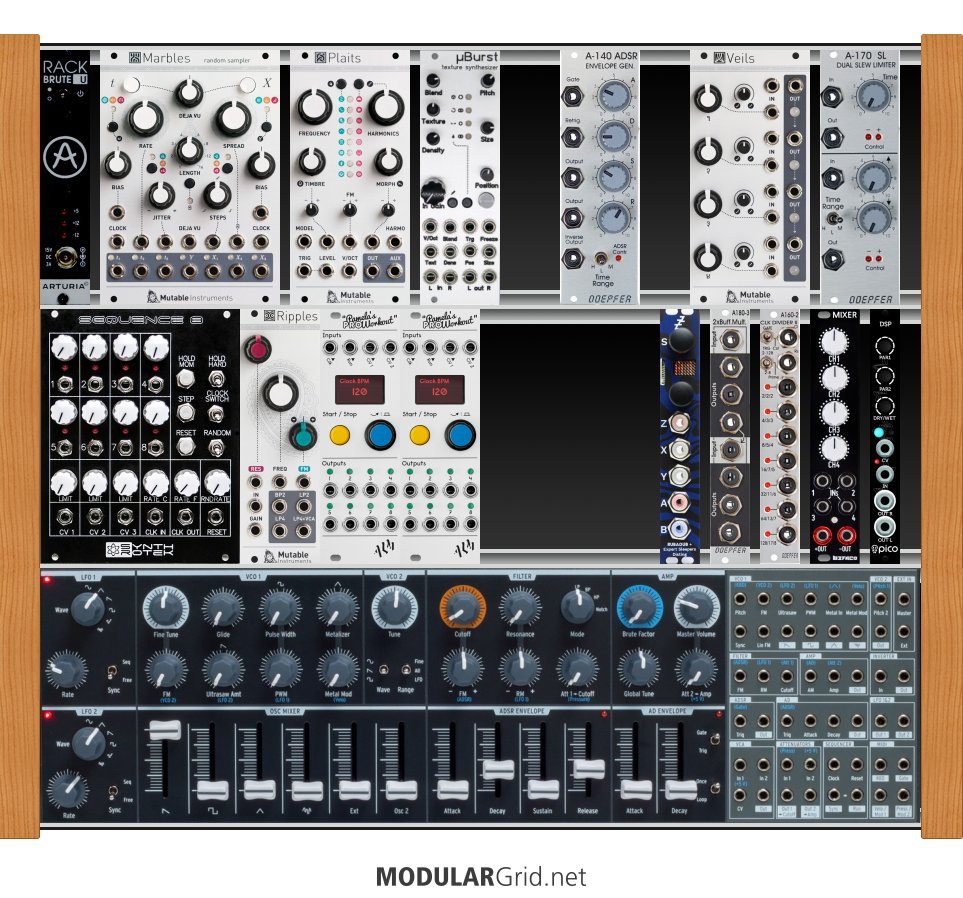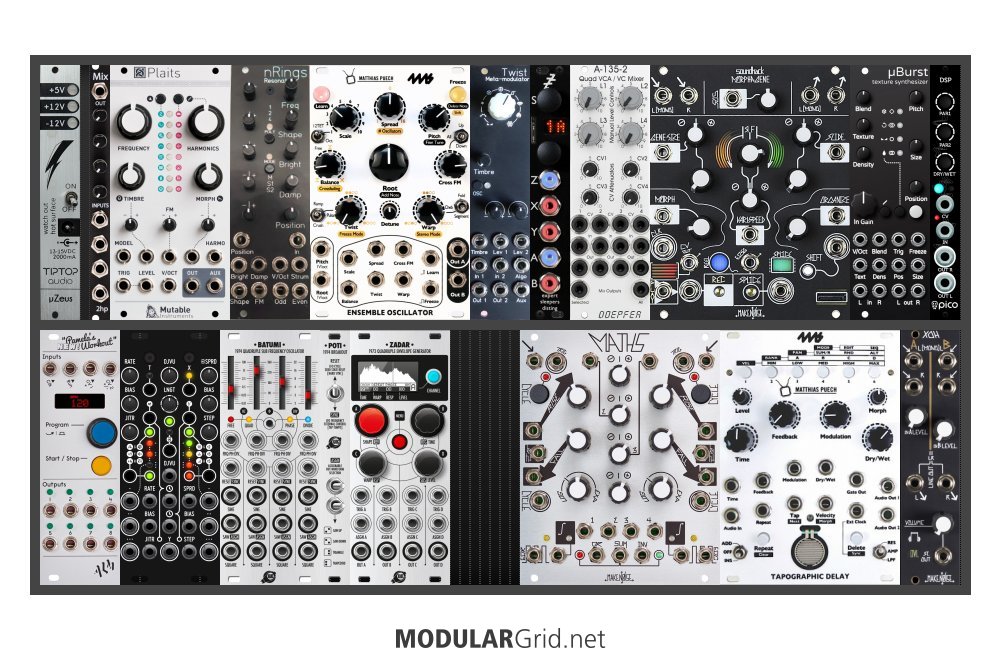Your English is fine and your English as a second language doesn't bother me... as it should not.
Okay. Now I understand what you're going for. The Eurorack is going to function more like an effects processor.
If you're wanting to add a filter I would recommend the Intellijel Morgasmatron. But it's 20HP. So you'll want a bigger skiff!
It has two multimode filters that can work independently, parallel, or series. The knobs are very good for live adjustments. One side has a switch for overdrive and the other has a phase-flip. There's also a mix-mode for blending the sound of the two outputs that can also be modulated. So you will get a lot of usage out of it for processing your effects.
The other filter I would recommend is the Joranalogue Filter 8. It's only one channel but all filter outputs are available via 3.5mm jacks rather than selecting a filter going to one jack.
The one thing I think you're missing is a mixer. The Blue Lantern Stereo Sir-Mix-A-Lot would work... but again, it's a big module. But the price point is under $300US. Six inputs, two stereo returns, two stereo aux sends, mutes, panning... there's a lot of value there.
If you're going with a skiff... find one that's 104HP. I don't think 84HP is going to be enough. I've reworked your case. I used Monsoon rather than uBurst as you'll get more functionality out of it. I also used a micro version of rings. I added the Morgasmatron and the Sir-Mix-Alot. For the remaining 8HP, I added a micro Ornaments & Crime module for some internal modulation, envelopes, sequencing, LFOs, etc. You could also replace the O_C with a VCA module should you want to use this as a synth and rely on the Shuttle for all of your modulation. I'd replace the buffered mult with the Intellijel dual VCA when it's available.
https://forum.intellijel.com/t/1u-dual-stereo-vca-module-what-features/1428/14
My ultimate recommendation would be an Intellijel 104 4U case. I'd get that. I stocked the 1U row with some line to Eurorack modules, noise/sample&hold, a quadratt for submixing, inverting, attenuation, and a buffered mult.

